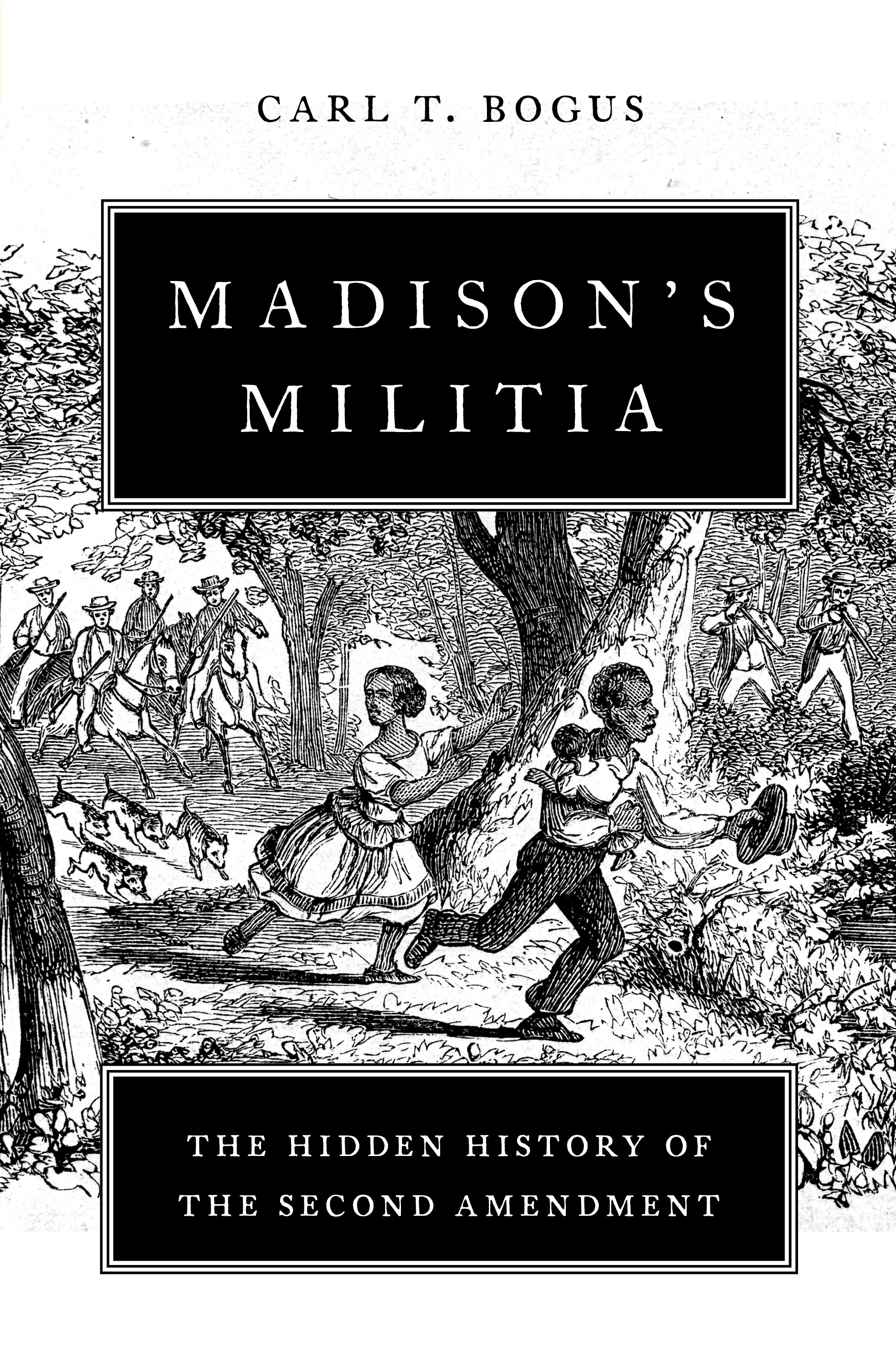Advance Praise for Madison's Militia
“At a time when the Supreme Court is increasingly looking at the original meaning in interpreting the Constitution, Professor Carl Bogus has written a riveting account of how the Second Amendment actually came to be added to the Constitution. Contrary to the conventional wisdom, Professor Bogus shows that the Second Amendment was meant to protect the slave system and keep Congress from disarming slave patrols. This is an essential history for all lawyers, judges, students, and individuals who are researching the original understanding of the Second Amendment and gun rights.” —Erwin Chemerinsky, Dean and Jesse H. Choper Distinguished Professor of Law, University of California, Berkeley School of Law
“Bogus offers a fresh and fearless investigation into why Madison and his contemporaries added the right to keep and bear arms to the Constitution. Uncluttered by myth or hagiography, this book will likely become the definitive account of the darker side of the Second Amendment’s drafting and ratification.” —Darrell A.H. Miller, Duke Law School
“A surprisingly fast-paced account of the events leading up to the Second Amendment. Bogus persuasively suggests that, while Madison and other Founders paid lip-service to the dedication of militias and the threat of standing armies, their primary concern was to suppress insurrections by the people they enslaved. Madison’s Militia undermines any claim by the Roberts Court/the Supreme Court to locate the individual right to bear arms in an originalist reading of the Constitution.”—Jeannine DeLombard, author, In the Shadow of the Gallows: Race, Crime, and American Civic Identity
“Carl Bogus makes an important contribution to efforts to discern the meaning of the 27 words that make up the Second Amendment to the United States Constitution. Bogus’ work provides a rich context to understand what those who drafted and debated the amendment faced, as well as what they hoped to accomplish. Bogus invites readers to reconsider the racially neutral right to bear arms that the amendment protects in light of the immediate racialized threat of uprisings and rebellions by enslaved people against their enslavers. His book offers a radically different way to read and understand the amendment which aligns with, rather than revises, the history surrounding its ratification.” —Lisa A. Crooms-Robinson, Professor, Howard University School of Law
“Slavery was the main event—not a sideshow—as the U.S. was founded. In this insightful, crisply written book Carl Bogus tells us that what impelled the now infamous Second Amendment was precisely the rampant fear of slave insurrections, necessitating the formation of a well-armed militia.”—Gerald Horne, author, The Counter-Revolution of 1776: Slave Resistance and the Origins of the United States of America
Madison’s Militia offers an illuminating overview of the tangled history of the Second Amendment and its “right to bear arms.” To understand its presence in the Constitution, Bogus demonstrates, requires grappling with the Glorious Revolution in 1688, the military history of the American revolution (and the decidedly mixed role played by citizen militias), and the deep fears of Southern slaveowners (including James Madison) of insurrections led by enslaved persons they well knew, because of events in Jamaica, South Carolina, and New York, among others, to be dissatisfied with their condition. Whatever the limitations of citizen militias in actually fighting wars, they were indispensable in Virginia and other states worried about suppressing any slave rebellions and about the possibility that the new national government would prove insufficiently protective of slavery. American historians are increasingly studying the intersections of slavery and a desire to maintain white supremacy, and Bogus provides a valuable, extremely well-written, demonstration of those intersections. —Sanford Levinson, University of Texas Law School and author of Framed: America’s 51 Constitutions and the Crisis of Governance




